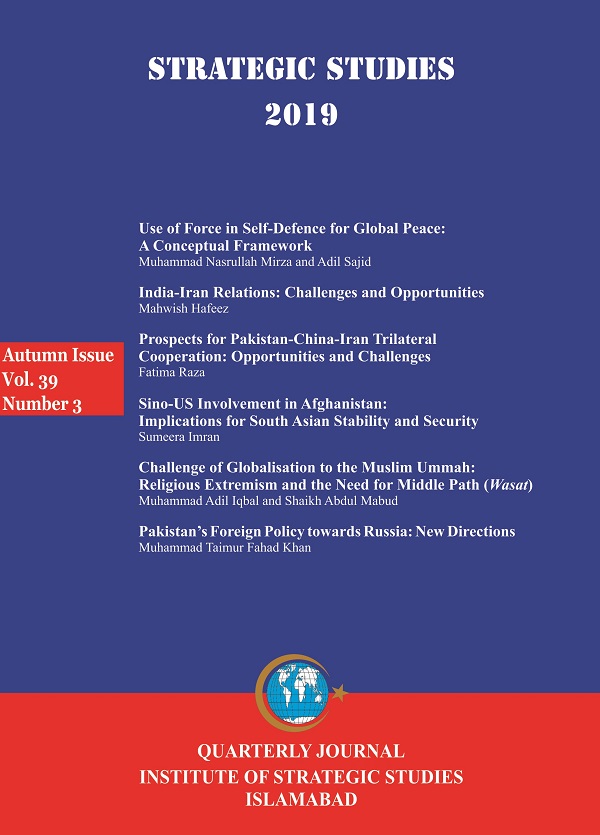Sino-US Involvement in Afghanistan: Implications for South Asian Stability and Security
Keywords:
Extremism, Separatism, Stability, Political Violence, Terrorism, Regional Spillover, Convergence and Divergence of interests, Regional SecurityAbstract
In the aftermath of 9/11, the US’ and China’s engagement in Afghanistan has portrayed competitive underpinnings manifested in the matrix of great power politics. Viewed under neo-structural realism and complex interdependence perspectives, Sino-US interests have straddled on convergence and divergence, portraying the desire to subdue the other players in Afghanistan. Sino-US competitive balancing has unleashed wide implications for the South Asian regional security and stability. Within this context, this study aims to analyse Sino-US involvement in Afghanistan post-9/11 to draw implications for regional security, particularly Pakistan-India and Afghanistan-Pakistan relations. It seeks to answer the following questions: i) What is the broad pattern of Sino-US competitive involvement in Afghanistan? ii) What implications can be drawn of Sino-US competitive balancing for stability in South Asia? The study argues that Sino-US power interplay has polarised the region while unleashing negative imprints for Pakistan’s relations with both India and Afghanistan.

Published
How to Cite
Issue
Section
Copyright (c) 2022 Strategic Studies

This work is licensed under a Creative Commons Attribution-NonCommercial 4.0 International License.



